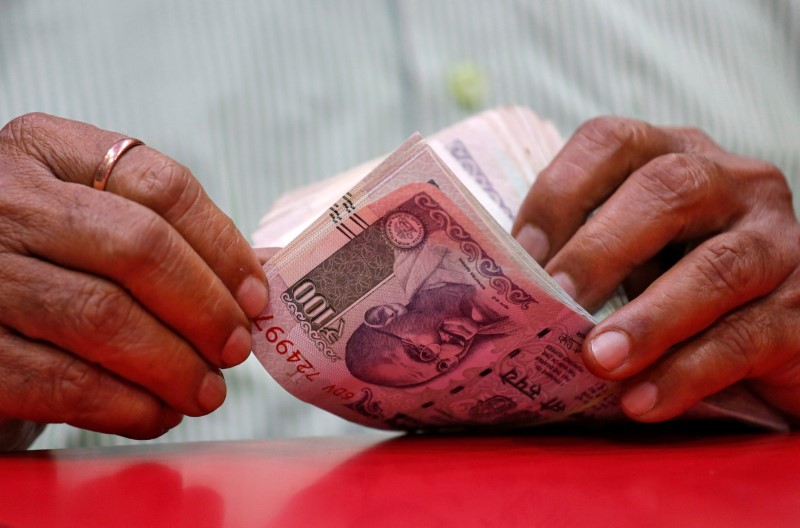This post was originally published on this site
 © Reuters. FILE PHOTO: A man counts Indian currency notes inside a shop in Mumbai
© Reuters. FILE PHOTO: A man counts Indian currency notes inside a shop in MumbaiBy Nupur Anand and Aftab Ahmed
MUMBAI/NEW DELHI (Reuters) – The Indian government has asked all state-owned lenders to extend emergency credit lines to corporate borrowers, three government and banking sources said, as it rushes to tackle the fallout from the coronavirus outbreak that has grounded business across the globe.
Banks have been asked to make available an additional 10% in funds over and above sanctioned working capital loans, but not exceeding 2 billion rupees ($26.33 million) per loan account as part of the emergency measures, a senior government official, who did not want to be named, said.
India’s largest lender, State Bank of India (NS:), has already rolled out this emergency credit line and the other state-owned lenders are also expected to follow suit shortly, industry officials said.
None of the sources wanted to be named as the plan is not yet public.
The Finance Ministry and SBI did not immediately respond to a request for comment.
Fusion Media or anyone involved with Fusion Media will not accept any liability for loss or damage as a result of reliance on the information including data, quotes, charts and buy/sell signals contained within this website. Please be fully informed regarding the risks and costs associated with trading the financial markets, it is one of the riskiest investment forms possible.


